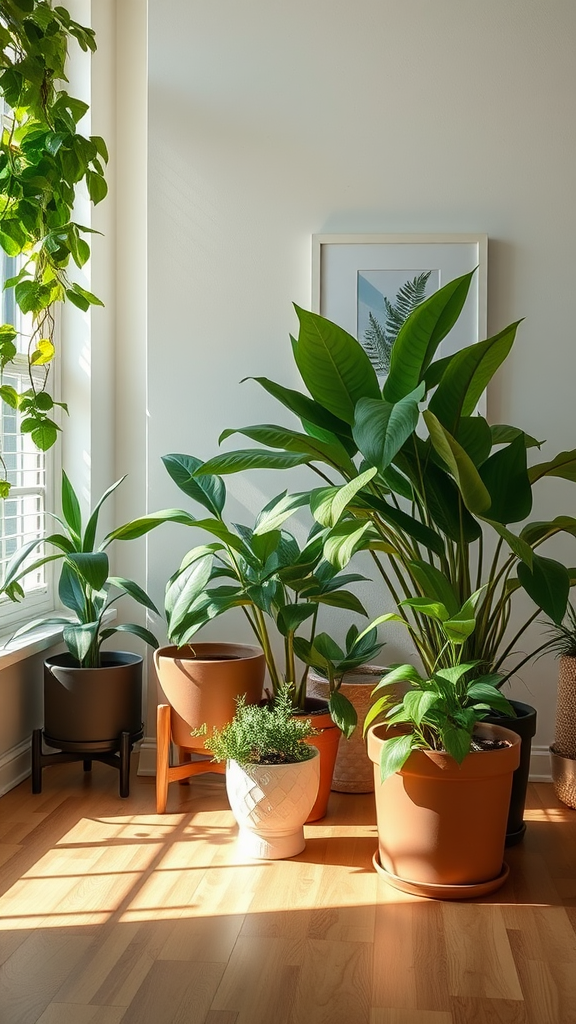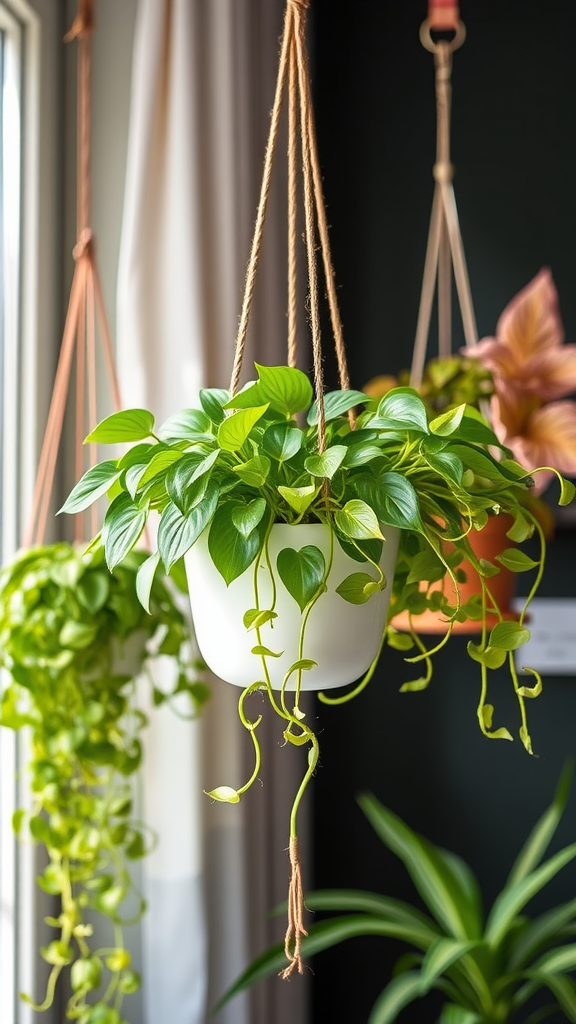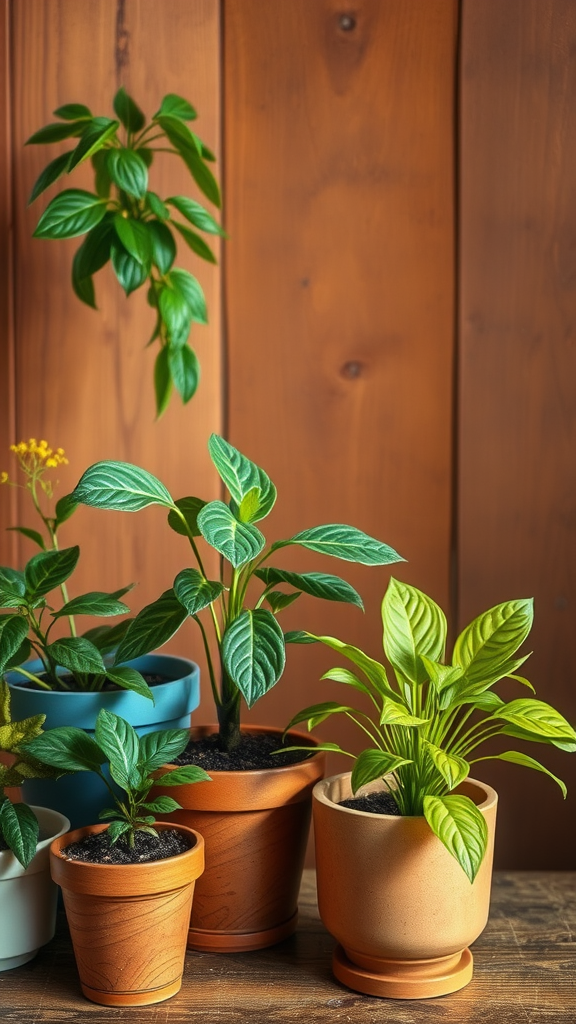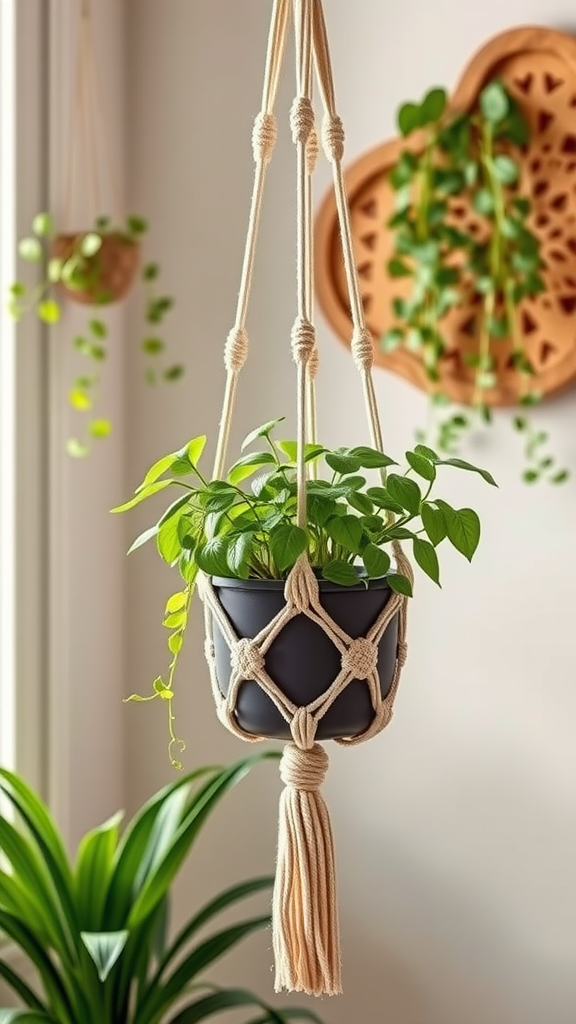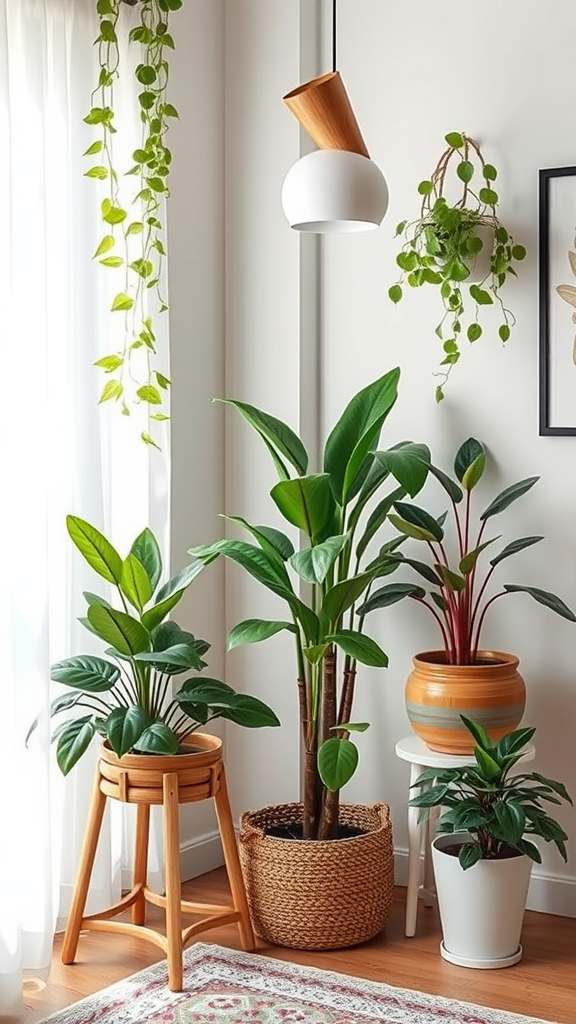The Role of Indoor Plants in Enhancing Mental Well-Being
Indoor plants are more than just decorative elements. They play a significant role in enhancing mental well-being. By introducing greenery into your living space, you can create a calming environment that supports emotional health. The presence of plants not only beautifies your home but also contributes to your feelings of relaxation, peace, and happiness.
Improving Air Quality
One of the key benefits of indoor plants is their ability to improve air quality. Many common household plants act as natural air filters. They absorb toxins, such as formaldehyde and benzene, and release oxygen. Clean air is essential for promoting mental clarity and reducing stress.
- Spider Plant: Known for its air-purifying qualities, the spider plant can help remove harmful chemicals from the air.
- Pothos: This hardy vine thrives in low light and is excellent for absorbing formaldehyde.
- Aloe Vera: Apart from its medicinal properties, aloe vera helps in breaking down pollutants.
Enhancing Mood and Reducing Stress
Research indicates that spending time around plants can reduce stress levels significantly. This can be attributed to their natural beauty and the connection they foster between humans and nature. Plants create a soothing atmosphere that encourages relaxation and happiness.
Having greenery in your space can lead to:
- Lower blood pressure
- Reduced feelings of anxiety
- Improved focus and concentration
Boosting Productivity and Creativity
Integrating plants into your workspace can enhance productivity and spur creativity. Studies have shown that people working in green environments tend to be more engaged and motivated. The presence of plants not only nourishes the senses but also encourages more innovative thinking.
Consider the following plants for your office:
- ZZ Plant: Extremely low maintenance, the ZZ plant thrives on neglect and can boost productivity.
- Boston Fern: This lush plant is known for reducing indoor toxins and increasing humidity, creating a refreshing environment.
- Peace Lily: A beautiful flowering plant that thrives in low light and promotes a calming atmosphere.
Creating a Mindful Routine
Plants into your daily routine can be a mindful practice. Caring for a plant offers a sense of responsibility and encourages routine, which is beneficial for mental health. Watering, pruning, and repotting can also serve as calming activities that allow you to focus on something positive.
Connecting with Nature
In our fast-paced lives, we often lose touch with nature. Indoor plants provide an easy way to reconnect with the natural world. Just looking at greenery can evoke a sense of calm and joy, helping to mitigate feelings of loneliness or sadness.
Choosing the Right Plants for Your Space
Selecting the right plants for your environment is crucial. Depending on factors such as light availability, humidity, and your personal preferences, you may want to consider a variety of options. Here are tips for choosing the best indoor plants:
- Assess Light Conditions: Understand how much natural light your space receives and choose plants that thrive in those conditions.
- Consider Maintenance: If you are busy or forgetful, opt for low-maintenance plants like succulents or snake plants.
- Think About Size: Large plants can serve as focal points, while smaller plants can be used on desktops or shelves.
By wisely choosing and incorporating plants into your living or work space, you can create an environment that fosters mental well-being. With their air-cleansing capabilities, stress-relieving benefits, and beauty, indoor plants serve as a vital asset for enhancing your overall quality of life.
So, if you’re looking to enhance your mental health, consider adding some greenery to your home or workspace! The impact of plants on mental well-being is profound and can lead to a more balanced, peaceful life.
Creating a Tranquil Environment: Tips for Your Plant Sanctuary
Creating a tranquil environment in your home can significantly enhance your well-being. One of the best ways to achieve a peaceful atmosphere is by incorporating plants into your living space. Not only do they add beauty, but they also provide mental health benefits that can calm your mind and improve your mood. Here are some practical tips to create your own personal plant sanctuary.
The Right Plants for Your Space
Choosing the right plants is essential for maintaining a tranquil environment. Here are some plants known for their calming effects:
- Lavender: Famous for its soothing fragrance, lavender can help reduce anxiety and promote relaxation.
- Snake Plant: This hardy plant is easy to care for and helps purify the air, leaving you with a fresh atmosphere.
- Peace Lily: With its beautiful white blooms, the peace lily not only enhances your decor but also reduces indoor toxins.
- Aloe Vera: Known for its healing properties, aloe vera can contribute to your peace of mind by promoting a sense of well-being.
- Spider Plant: An excellent air purifier, this delightful plant is perfect for beginners and adds a touch of greenery.
Placement for Optimal Serenity
Where you place your plants matters greatly. Consider the following tips for optimal placement:
- Bright, Indirect Light: Most houseplants thrive in bright, indirect light. Position them near windows but avoid direct sunlight to prevent burns.
- Group Similar Plants: Create a visually appealing display by grouping plants with similar lighting and watering needs together. This can help create a cohesive look.
- Space for Growth: Ensure that each plant has enough room to grow. Crowding plants can lead to stress and decline in health.
Creating a Calming Atmosphere
The surrounding decor plays a crucial role in making your plant sanctuary a peaceful retreat. Here are some elements to consider:
- Colors: Choose calming colors like soft blues or greens for your walls. These shades are known to reduce stress and promote relaxation.
- Natural Materials: Incorporate wood and stone elements to create a connection to nature, enhancing the overall tranquil vibe.
- Comfortable Seating: Invest in cozy chairs or a serene reading nook where you can sit surrounded by your plants, allowing you to unwind and recharge.
Care and Maintenance
Caring for your plants is vital not just for their survival but also for maintaining a tranquil environment. Here are some care tips:
- Water Regularly: Check the moisture of the soil and water your plants accordingly. Wilting leaves can lead to stress, both for the plants and yourself.
- Dust Off Leaves: Clean the leaves regularly to ensure they can photosynthesize effectively. Dust can block light and hinder growth.
- Fertilize Wisely: Use a balanced fertilizer during the growing season to encourage healthy growth. This will keep your plants vibrant and thriving.
Other Elements
Your plant sanctuary can be enhanced by incorporating other calming elements:
- Soothing Sounds: Utilize calming music, or nature sounds in the background to further promote a serene environment.
- Essential Oils: Use a diffuser with calming essential oils like lavender or chamomile. This can complement the scent of your plants.
- Soft Lighting: Incorporate soft lighting options like fairy lights or lanterns to create a warm, inviting atmosphere.
Creating a tranquil environment through the use of plants is a beautiful way to nurture your mental health. By carefully selecting your plants, placing them mindfully, and maintaining their care, you can cultivate a calming space that brings joy and peace into your life. Whether it’s a sunlit corner of your living room or a cozy nook filled with greenery, a plant sanctuary can become your personal retreat, helping you recharge and find serenity in your busy day-to-day life.
Conclusion
As you reflect on the relationship between plants and mental health, it becomes clear that incorporating indoor plants into your space can significantly enhance your overall well-being. The benefits of nurturing greenery go beyond aesthetic appeal; they create a calming atmosphere that encourages relaxation, boosts your mood, and reduces stress. By strategically selecting plants that resonate with you and fit your environment, you can cultivate a sanctuary that promotes serenity and focus.
Setting up your plant sanctuary can be an enjoyable process. Consider choosing spots that receive the right amount of light, and take your time arranging your plants to reflect your personal style. Remember that maintaining these plants can also be a therapeutic activity, allowing you to engage in mindfulness as you care for them.
Don’t underestimate the power of nature, even in small doses. Each plant you add can serve as a reminder of growth, resilience, and the importance of nurturing your mental health. Whether you opt for leafy ferns, vibrant succulents, or flowering plants, each will contribute to a tranquil environment that supports your journey toward mental wellness. Embrace the opportunity to create a personalized green space that resonates with you, transforming your home into a haven for calm and clarity. Let your love for plants not just beautify your space, but also uplift your spirit and enhance your quality of life.

